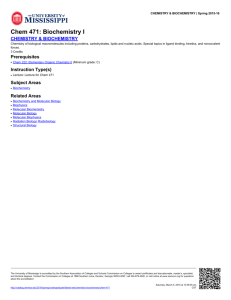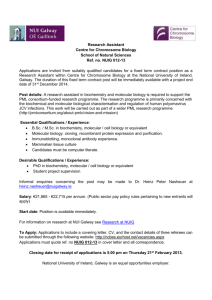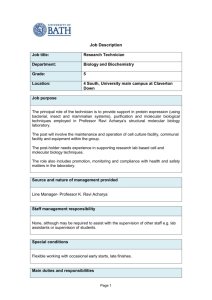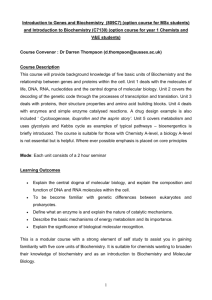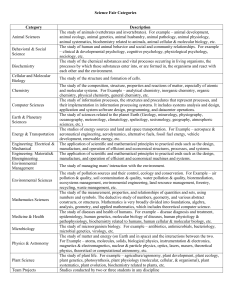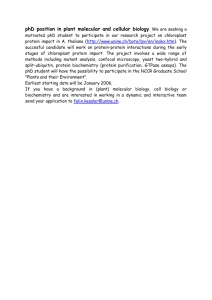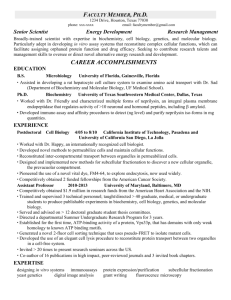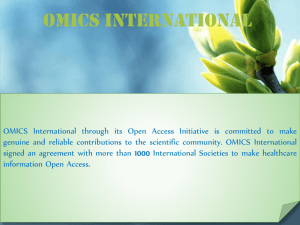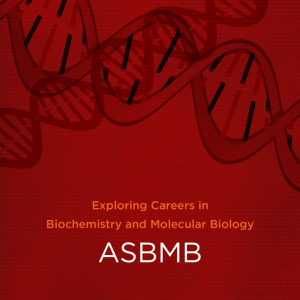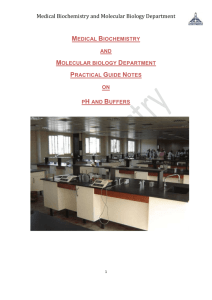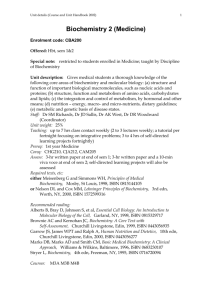Message to the Scientists Attending the Silver Anniversary Meeting
advertisement
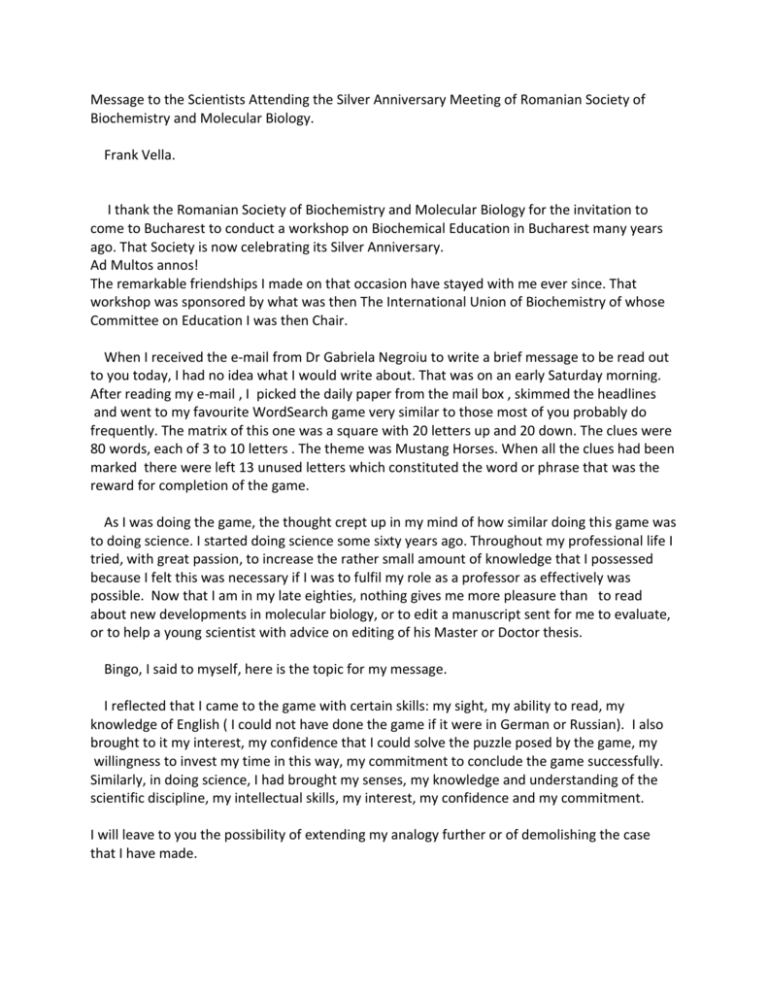
Message to the Scientists Attending the Silver Anniversary Meeting of Romanian Society of Biochemistry and Molecular Biology. Frank Vella. I thank the Romanian Society of Biochemistry and Molecular Biology for the invitation to come to Bucharest to conduct a workshop on Biochemical Education in Bucharest many years ago. That Society is now celebrating its Silver Anniversary. Ad Multos annos! The remarkable friendships I made on that occasion have stayed with me ever since. That workshop was sponsored by what was then The International Union of Biochemistry of whose Committee on Education I was then Chair. When I received the e-mail from Dr Gabriela Negroiu to write a brief message to be read out to you today, I had no idea what I would write about. That was on an early Saturday morning. After reading my e-mail , I picked the daily paper from the mail box , skimmed the headlines and went to my favourite WordSearch game very similar to those most of you probably do frequently. The matrix of this one was a square with 20 letters up and 20 down. The clues were 80 words, each of 3 to 10 letters . The theme was Mustang Horses. When all the clues had been marked there were left 13 unused letters which constituted the word or phrase that was the reward for completion of the game. As I was doing the game, the thought crept up in my mind of how similar doing this game was to doing science. I started doing science some sixty years ago. Throughout my professional life I tried, with great passion, to increase the rather small amount of knowledge that I possessed because I felt this was necessary if I was to fulfil my role as a professor as effectively was possible. Now that I am in my late eighties, nothing gives me more pleasure than to read about new developments in molecular biology, or to edit a manuscript sent for me to evaluate, or to help a young scientist with advice on editing of his Master or Doctor thesis. Bingo, I said to myself, here is the topic for my message. I reflected that I came to the game with certain skills: my sight, my ability to read, my knowledge of English ( I could not have done the game if it were in German or Russian). I also brought to it my interest, my confidence that I could solve the puzzle posed by the game, my willingness to invest my time in this way, my commitment to conclude the game successfully. Similarly, in doing science, I had brought my senses, my knowledge and understanding of the scientific discipline, my intellectual skills, my interest, my confidence and my commitment. I will leave to you the possibility of extending my analogy further or of demolishing the case that I have made. I am very keen on the metaphor: ‘An island of knowledge in an ocean of ignorance’, because of its great power In this, the matrix of the game could be considered to be that ocean, and what I brought to it was my island of knowledge. Of course there are thousands of similar games each with a different theme in a language that I am familiar with. The same applies to the problems or themes that constitute our beloved discipline of Biochemistry and Molecular Biology. Some may require a long time to explore, to add to the island of knowledge and to remove from the ocean of ignorance. The important thing is to decide what theme interests you enough to occupy you for as long as necessary, with commitment and passion. That is what success and personal satisfaction require. The metaphor I have just used was popularized last year by the book by Marcelo Gleiser with the title The Island of Knowledge, and subtitle The Limits of Science and the Search for Meaning, published by Basic Books (2014). I will conclude by quoting from that book (Prologue, page xxii). “...As the Island of Knowledge grows, so do the shores of our ignorance - the boundary between the known and the unknown. Learning more about the world doesn’t lead to a point close to a final destination - whose existence is nothing but a hopeful assumption anyway - but to more questions and mysteries. The more we know, the more exposed we are to our ignorance, and the more we know to ask”. This is an exciting project. Are you prepared to give it your dedication and efforts? By the way, the gem in the matrix of the game was’ Equus caballus’, which was in a language I was not expecting! What a thrilling bonus! I wish all of you success in increasing the island of knowledge of the discipline to which your Society is committed. May you enjoy doing it. F. Vella, MD, MA(Oxon), PhD, hon DSc(Malta), Emeritus Professor of Biochemistry, University of Saskatchewan, General Secretary, International Union of Biochemistry and Molecular Biology(1988 to 2000), Master Teacher Award, University of Saskatchewan (1984), Rhodes Scholar for Malta (1952 to 1955) f.vella@sasktel.net
